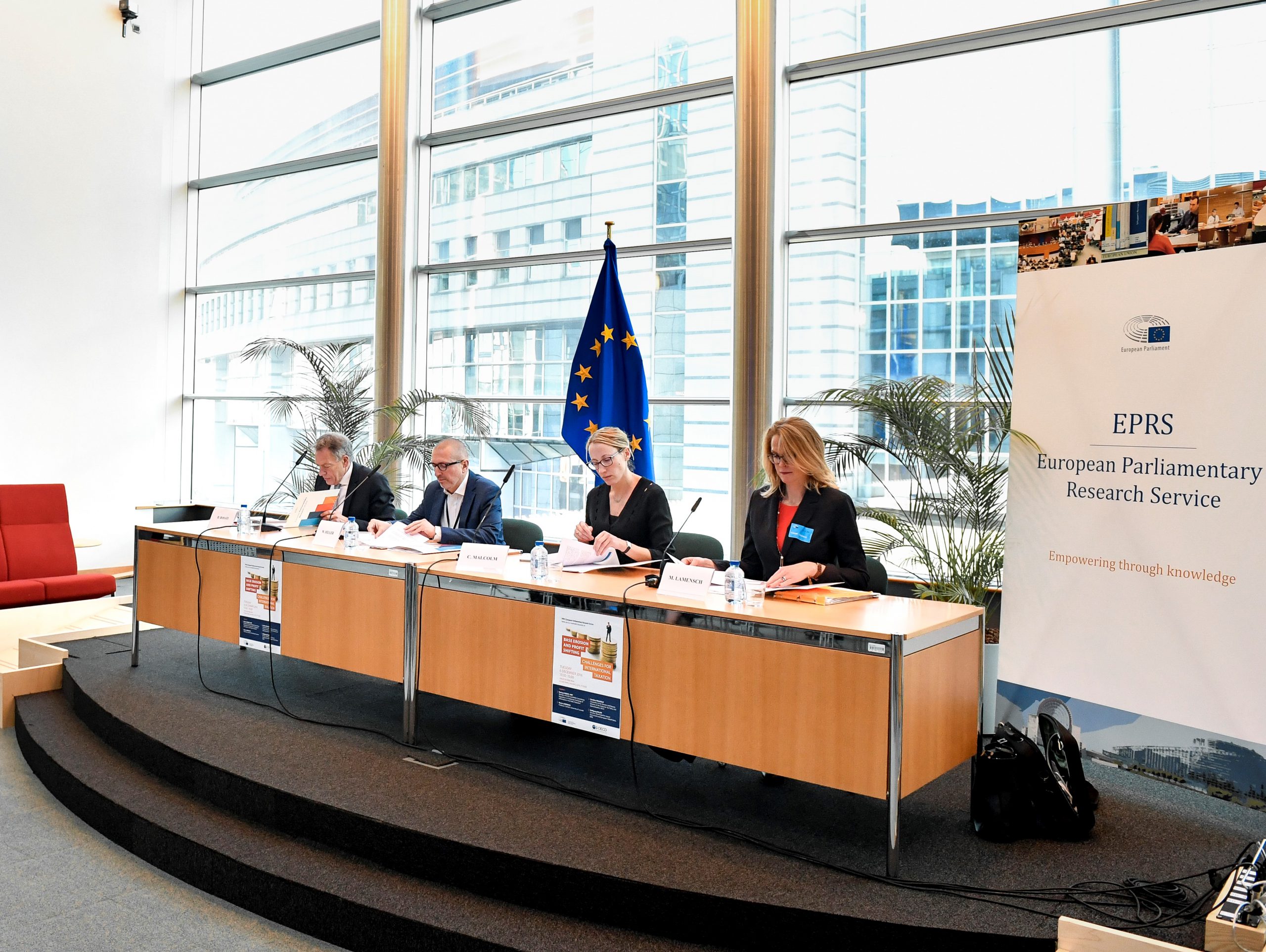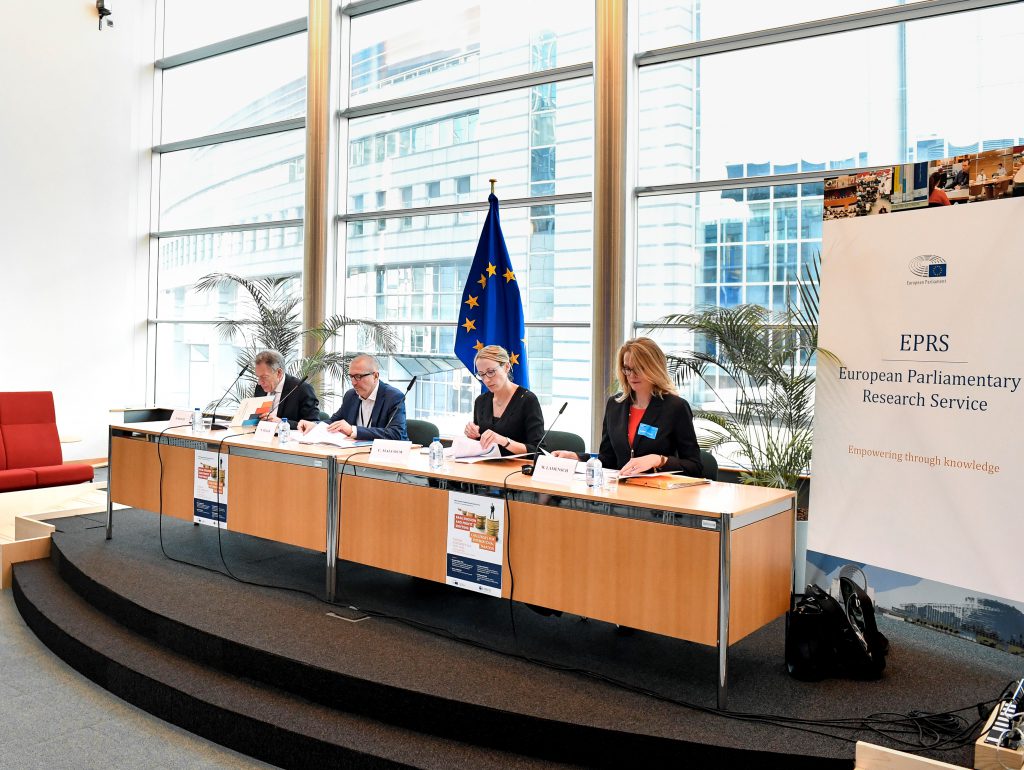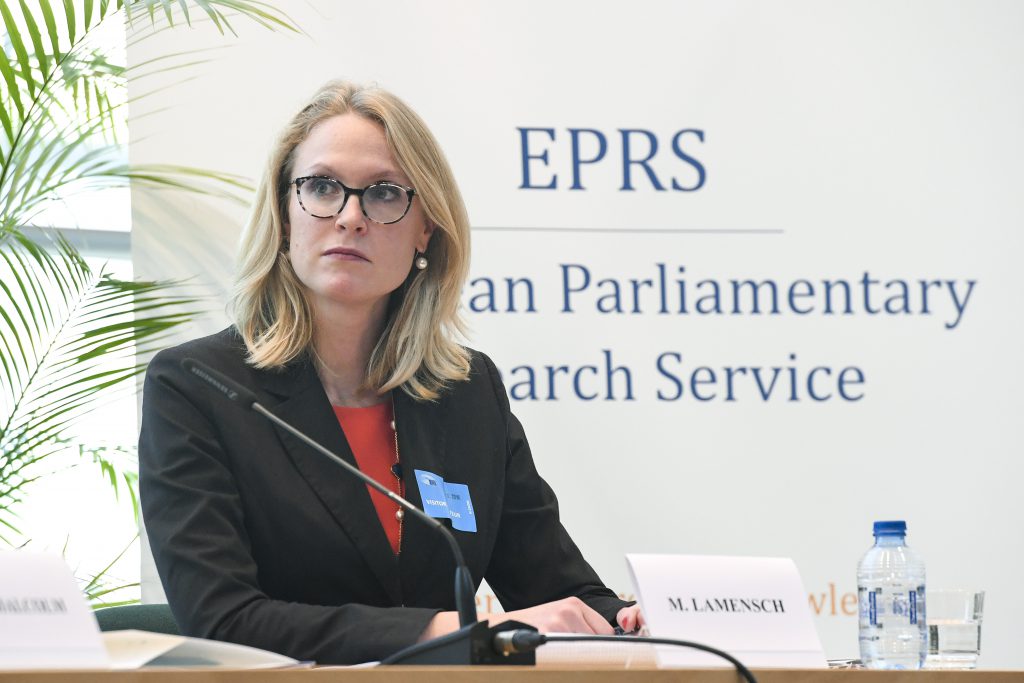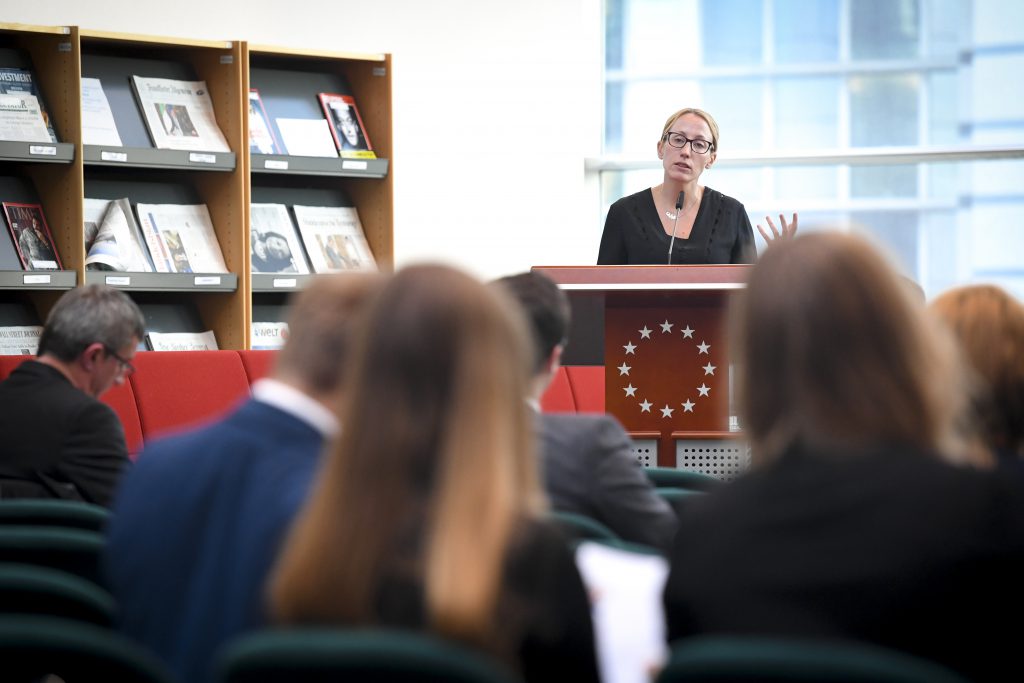Written by Marcin Grajewski,

Despite substantial progress in recent years, countries worldwide should step up the fight against corporate tax evasion and tax avoidance, as they deprive governments of much needed funds at a time of fiscal austerity. These activities exacerbate social inequalities that fuel populism, according to politicians and analysts speaking at a conference in the European Parliament. The event, entitled ‘base erosion, profit shifting: challenges to international taxation’, was organised by the European Parliamentary Research Service (EPRS) and the Organisation for Economic Cooperation and Development (OECD) in the European Parliament Library Reading Room on 6 December 2016.
Problems related to international taxation had simmered on a backburner for decades, noted Caroline Malcolm, Counsellor to the Director at the OECD Centre for Tax Policy and Administration, until the 2008 financial crisis and the ensuing recession put them high on the political agenda. While tax evasion is fraud, tax avoidance is a legal activity that exploits badly drafted regulation, or regulation purposely designed by a state which wishes to attract investors at the expense of other countries, and often leads to harmful tax competition. ‘A couple of years into the financial crisis, when individual taxpayers were subject to strict austerity and there were bailouts of large financial institutions, attention focused on very large multi-national companies which paid one or two percent in tax on their profit globally. Something was wrong,’ Malcolm told the conference.

In response, the OECD’s ‘base erosion, profit shifting’ (BEPS) project was born, and is now being implemented by the G20 group of the wealthiest countries and other members of the global community. The idea is to thwart company tax avoidance strategies that exploit gaps and mismatches in tax rules to artificially shift profits to low or no-tax locations. BEPS and other related initiatives have largely boosted taxation transparency, curbed banking secrecy, and discouraged governments from offering ‘tax deals’ to firms to attract investment. Wolfgang Hiller, who moderated the debate and heads the EPRS Directorate for Impact Assessment and European Added Value added that ‘we are coming to the moment that things really need to be implemented’.
However, EU governments alone still lose €50-70 million annually in potential revenues as a result of aggressive tax planning by international corporations, noted Dariusz Rosati, MEP and member of the ECON Committee and PANA Sub-Committee, as well as the ECON Committee rapporteur on a report on automatic exchange of information in the field of taxation. Curbing tax avoidance ‘would help to establish a level playing field between large corporations and small and medium-sized companies,’ Rosati told the conference. He added that the EP fully supports all initiatives to combat tax avoidance, although the Parliament has limited powers in the area of taxation. Rosati also warned that, if some countries do not want to cooperate under the BEPS project, they should ultimately face sanctions.

While current efforts to close taxation loopholes have made much progress, shortcomings remain, Professor Marie Lamensch of the Institute of European Studies, at the Free University of Brussels pointed out. ‘The current approach is not ambitious enough for the 21st century digital economy,’ she told the conference. Noting that BEPS has largely neglected value added tax (VAT) and related fraud, Professor Lamensch considered that a more fundamental reform is needed, which would include modernisation of the VAT and income tax system. There appears, however, to be little prospect for that now, as even in the EU, Member States cannot agree on a common consolidated tax base, or a single set of rules to calculate companies’ taxable profits, despite repeated efforts by the European Commission to introduce this.













Be the first to write a comment.